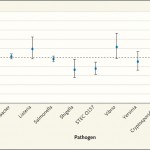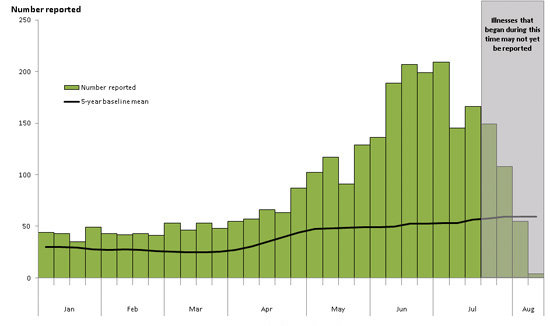Is food getting safer? Not very
Michael Osterholm writes in the current New England Journal of Medicine that despite claims that foodborne illness is declining in the United States, that is only part of the story. His editorial refers to the now-published study of Salmonella Saintpaul that I talked about in a previous post. He says:
All these findings, however, must be interpreted with caution, since most of the decreases occurred between 1996 and 2000, and there has been little additional change since then.
When the 2009 incidence of infections with the eight primary bacterial and parasitic pathogens is compared with their incidence in the period from 2006 through 2008, no significant change can be seen for six pathogens; only the infection rates with shigella and STEC O157 show significant decreases (see graph).
In addition, recent studies have demonstrated a significant increase in the incidence of foodborne disease caused by emerging non-O157 STEC, suggesting that surveillance for O157 is no longer sufficient to determine the effect of foodborne STEC infections.
On the basis of FoodNet data for the past 14 years,we must conclude that the improvements made in the late 1990s in the safety of our food supply are still having a positive effect. But we’ve made little additional progress in the past decade.
The graph he refers to comes from Pathogen. It represents the percent change in laboratory-confirmed foodborne infections from 2006–2007 to 2009. The horizontal line represents no change.




